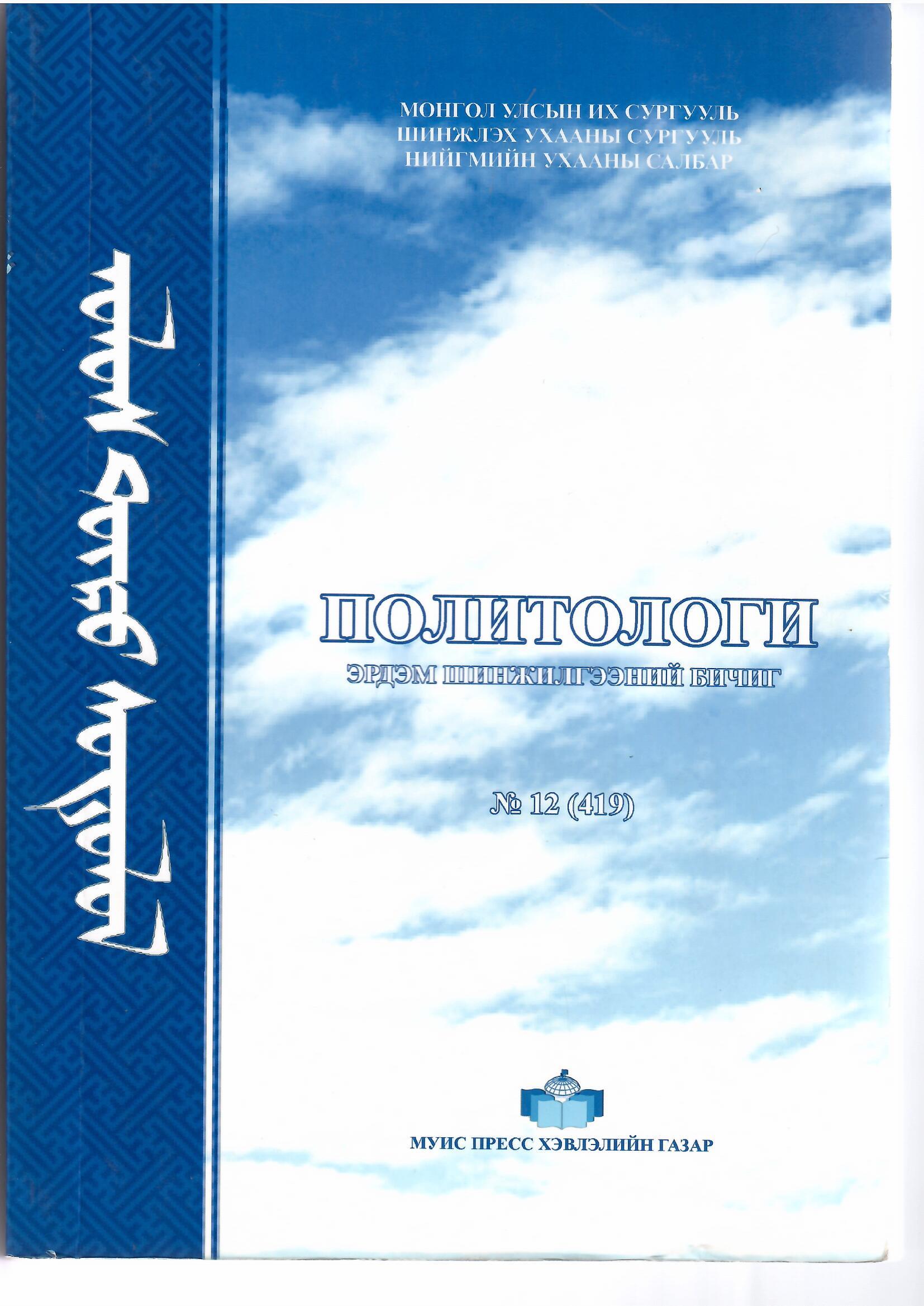ПАК ЖОНГ ХЫЙ-ГИЙН ЗАСАГЛАЛЫН ЭРХ МЭДЛИЙН БҮТЭЦ БОЛОН ЭДИЙН ЗАСГИЙН БОДЛОГЫН ОНЦЛОГ
Abstract
In the administration of former President Park chung-hee, the role of the legislative branch was weak compare with government agencies which operated by president park's aide. President Park Chung-hee was focused on economic development in order to justify the lack of the power legitimacy after the coup. As a result, all the state power has been focused on president Park Chung-hee. And concentrated power was implemented by some people close to the president. The foreign exchange is necessary for development of economy. So despite of the opposition of the people, president park was negotiations with Japan to obtain reparations and loans. And by dispatched of troops to the Vietnam war, could received financial support from the United States. But economic performance of Park Chung-hee regime might trigger the people's resistance bigger. Rapid industrialization strengthening the power of democracy, strengthened public opinion opposed to dictatorship of Park Chung-hee. The economic policy of park's presidency left two legacies in the viewpoint of social justice. First, after park's regime, the government's national goals are focusing on economic development rather than realize social justice. Second, South Korea's conglomerates had grown under the president park's regime. By Given the various benefits and government support from the president park chung-hee. As a result. conglomerates has been established a rigid system. On the other hand, democratic social systems which check and control for conglomerates, did not fully grown until the present.




